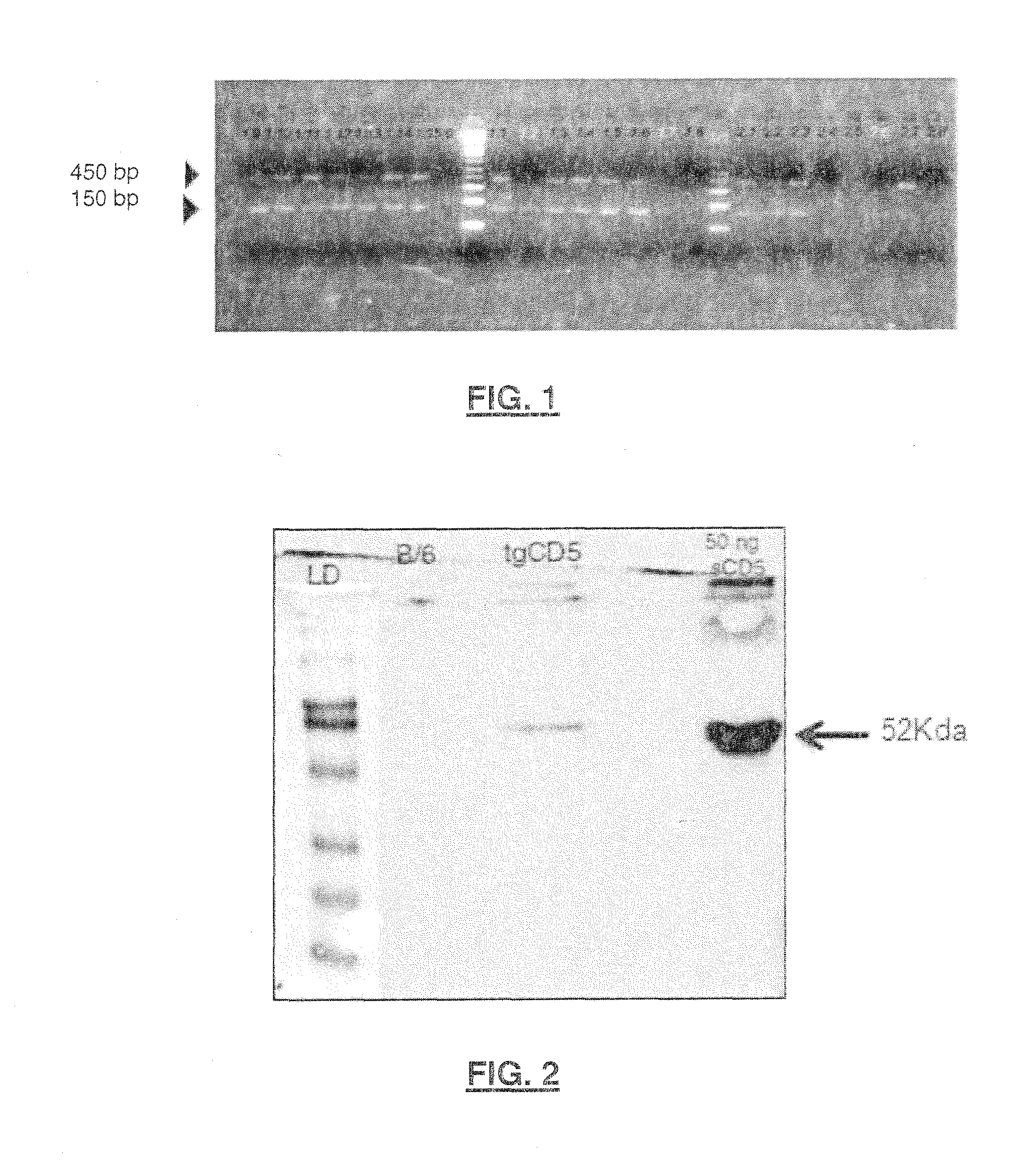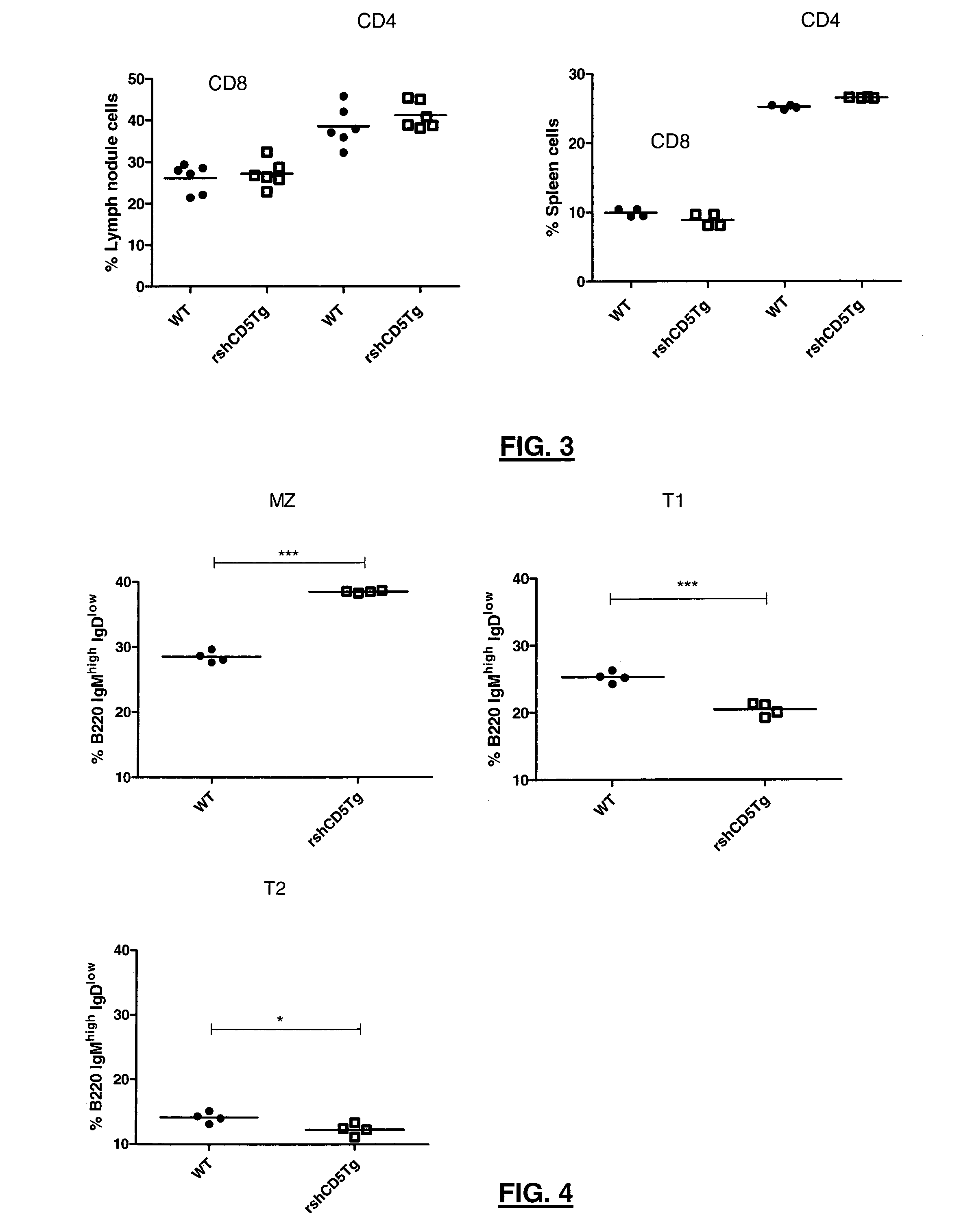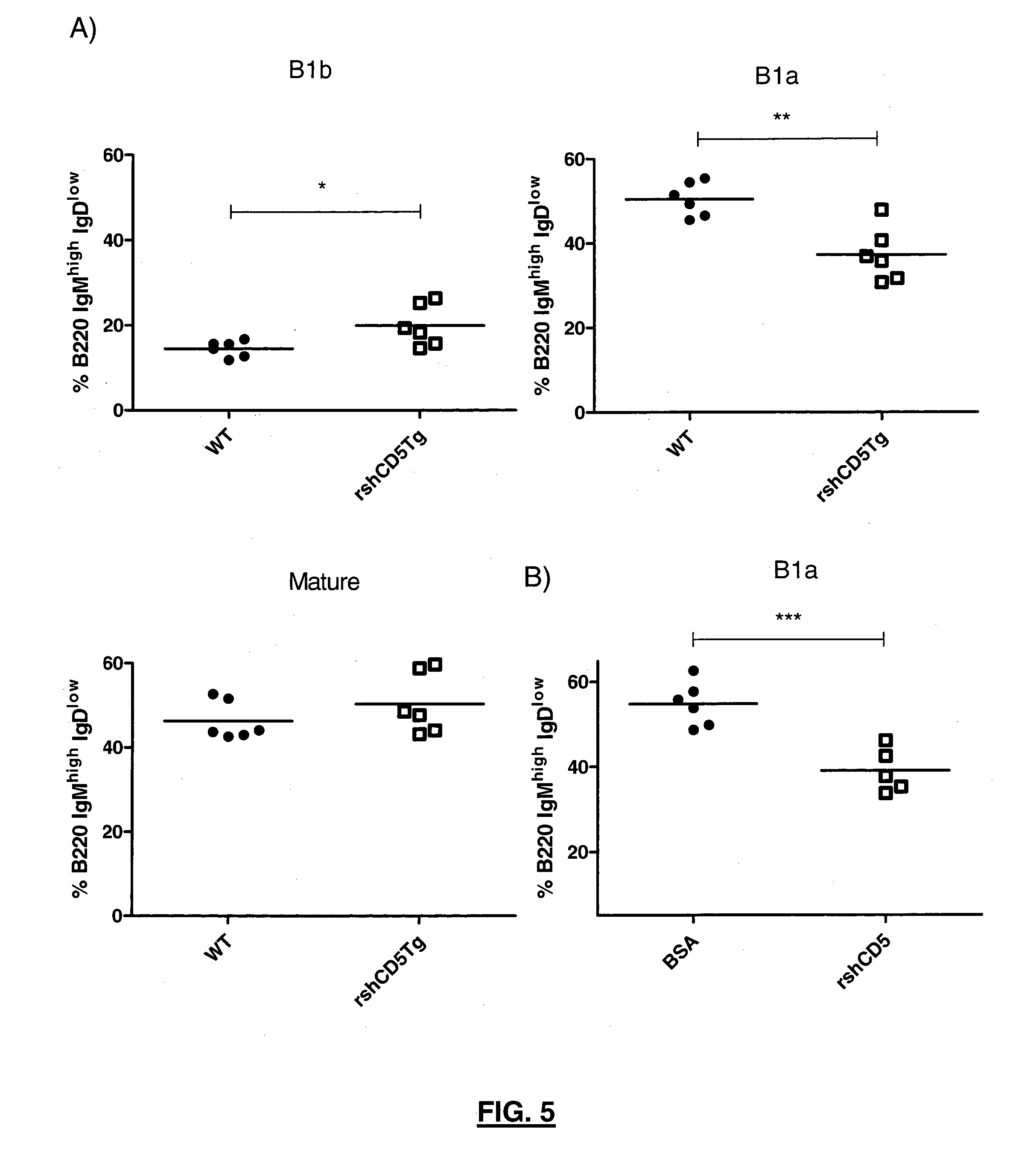Soluble protein cd5 or cd6 for the treatment of cancer or tumor or for use as an adjuvant
a technology of soluble protein and cancer, which is applied in the direction of antibody medical ingredients, peptide/protein ingredients, immunological disorders, etc., can solve the problems of limited effectiveness, chemotherapy involves a drawback, and most treatments are toxic to non-cancerous tissues in the body
- Summary
- Abstract
- Description
- Claims
- Application Information
AI Technical Summary
Benefits of technology
Problems solved by technology
Method used
Image
Examples
example 1
Generation of rshCD5Tg Transgenic Mice (Mice Over-Expressing SEQ ID NO: 2 or Human Soluble CD5 Isoform)
[0124]In an attempt to investigate the functional relevance of shCD5 in vivo, the inventors generated a new strain of mice which expressed recombinant shCD5 (rshCD5, also named SEQ ID NO: 2) under the control of the SV40 promoter (SEQ ID NO: 10) and the IgH enhancer (Eμ). The latter is intended to drive the expression of rshCD5 preferentially to B lymphocytes.
[0125]Construction for expression of recombinant human soluble CD5 isoform was done following the methodology disclosed by Calvo et al. “Interaction of recombinant and natural soluble CD5 forms with alternative cell surface ligand”, Eur. J. Immunol.—1999, Vol. 29, pp.: 2119-2129. The methodology includes the construction by EcoRI / KpnI cloning of two previously reported cDNA clones, pT1-1 and pT1-2 into the EcoRI site of a modified version of the pHβAPr-1-neo expression vector. These two clones are disclosed by Jones et al., in...
example 2
Concomitantly Reduced Proportion of Lymphocyte Subpopulations with Well-Known Regulatory Function and Exacerbated Autoimmune Responses in Transgenic rshCD5tg Mice
[0132]To investigate the effect of rshCD5 in T cell development and homeostasis, the inventors analyzed the major subpopulations of T cells in the thymus, lymph node and spleen of transgenic rshCD5tg mice and their non-transgenic littermates. Total cell numbers and percentages of CD4+ and CD8+ T lymphocytes were not significantly different in the thymus, lymph node or spleen of transgenic mice as compared to non-transgenic littermates (data not shown). Further analysis of the major T and B cell populations from bone marrow, lymph node and thymus by flow cytometry did not detect any gross phenotypic abnormalities in transgenic rshCD5tg mice as compared to non-transgenic littermates. These data are retrieved in FIG. 3 and FIG. 4, wherein flow cytometry analysis of different T and B cell subpopulations is depicted. Flow cytome...
example 3
Reduced Growth of B16 Melanoma, RMA-S Lymphoma and MCA205 Sarcoma Tumours in Transgenic rshCD5Tg Mice or in Wild-Type Non-Transgenic C57Bl / 6 Mice Treated with Exogenous rshCD5 Plus Chemotherapy
[0148]To further explore the functional consequences of the decrease in T and B regulatory cell subpopulations as well as the increase in NKT effector cell subpopulations observed in transgenic rshCD5tg mice, the anti-tumoral immune response to B16 mouse melanoma cells was analyzed. B16 cells (1×105) were injected subcutaneously (s.c.) into either transgenic rshCD5tg mice or their non-transgenic littermates, and tumour growth was recorded over time with a calibre. As shown in FIG. 11, B16 tumours grew significantly more slowly in transgenic rshCD5tg mice as compared to non-transgenic mice.
[0149]Taking these data into account, the inventors also evaluated a potential improved response of transgenic rshCD5tg mice on metastatic dissemination by intravenously (i.v.) injecting 2×105 B16 melanoma ce...
PUM
| Property | Measurement | Unit |
|---|---|---|
| time | aaaaa | aaaaa |
| diameter | aaaaa | aaaaa |
| concentration | aaaaa | aaaaa |
Abstract
Description
Claims
Application Information
 Login to View More
Login to View More - R&D
- Intellectual Property
- Life Sciences
- Materials
- Tech Scout
- Unparalleled Data Quality
- Higher Quality Content
- 60% Fewer Hallucinations
Browse by: Latest US Patents, China's latest patents, Technical Efficacy Thesaurus, Application Domain, Technology Topic, Popular Technical Reports.
© 2025 PatSnap. All rights reserved.Legal|Privacy policy|Modern Slavery Act Transparency Statement|Sitemap|About US| Contact US: help@patsnap.com



